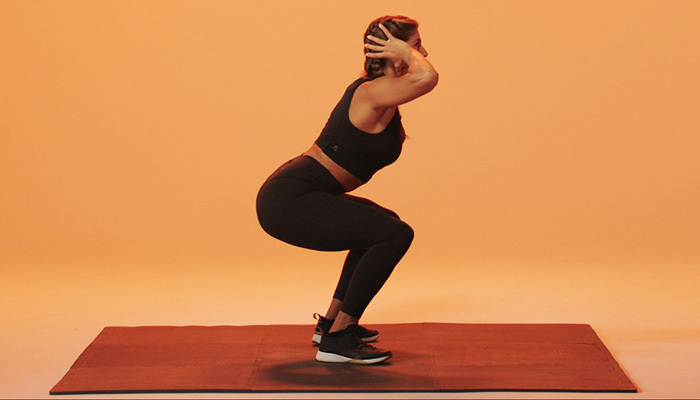We all know that exercise is good for us, but what happens when we make it a regular exercise? According to recent research, the health benefits are pretty amazing. Not only does exercise improve our physical health, but it also enhances our mental well-being. So if you’re looking for an excuse to start working out more often, here it is! Read on to learn more about the science behind everyday exercise and how it can benefit you.
What Are the Benefits of Exercising Every Day?
Here are just a few benefits that you can expect to see from exercising every day:
Exercise Improves Your Physical Health
When you exercise, your heart rate increases, and you breathe more deeply. This allows your body to deliver more oxygen to your muscles and organs, which helps you have more energy levels. Exercise also helps reduce inflammation in the body, which can lead to a number of chronic diseases.
Exercise Enhances Your Mental Health Well-Being
Research has shown that a workout routine can help improve your overall mood and reduce stress. Exercise releases endorphins, which have been shown to improve mood and decrease feelings of pain. Additionally, exercise has been linked to improved cognitive function, increased confidence and reduced risk of Alzheimer’s disease and other forms of dementia.
Exercise Can Help You Sleep Better

Exercise helps better sleep at night and reduces your risk of hypertension and cardiovascular disease. When you exercise, your body temperature rises and then falls, helping to signal to your body that it is time to sleep. Additionally, exercise can help reduce stress levels and improve sleep quality.
Exercise Can Help You Maintain a Healthy Weight
If you’re looking to lose weight, exercise can help. And also, exercise can help you maintain healthy and help your strength training. This is because exercise burns calories and helps build different muscle groups, contributing to a higher metabolism.
Exercise Can Help Reduce the Risk of Chronic Diseases
Regular exercise has been shown to reduce the risk of a number of chronic diseases, including heart disease, stroke, high blood pressure, diabetes, and some forms of cancer. Additionally, exercise can help improve the management of conditions such as arthritis and osteoporosis.
How to Start an Exercise Routine That Works for You
Now that you know some of the benefits of exercise, you might wonder how to start an exercise program for your routine.
First, it’s important to find an activity you enjoy and can realistically commit to regularly. For some people, this might mean signing up for a gym membership or taking an exercise class. Others might prefer exercising at home with a workout video or going for daily walks or runs.
Once you’ve found an activity you enjoy, it’s important to set fitness goals and plan how often you will exercise. For example, if you’re starting, you might want to do bodyweight training exercises three times a week for 30 minutes at a time or find a personal trainer to help you create your daily exercise.
As you become more comfortable with your new exercise program, you can gradually increase the intensity and frequency of your workouts. But, no matter how you choose to exercise, remember that the key to seeing results is consistency and making exercise a part of your daily routine.
The Importance of Taking Care of Your Body

Just as you need to take care of your car or your home, you need to take care of your body. After all, your body is what allows you to live your life. Taking care of your body includes eating healthy foods, exercising regularly, and getting enough sleep.
Eating healthy foods gives your body the nutrients it needs to function correctly. Exercise helps to keep your body strong and weight loss and can help reduce your risk of developing health problems. Getting enough sleep gives your body a chance to rest and heal.
When you take care of your body, you are more likely to feel good and have the energy you need to live your life to the fullest.
Tips for Staying Motivated to Work Out Every Day
1. Find an exercise partner: Having someone to exercise with can help you stay accountable and motivated.
2. Set realistic goals: Achievable goals will help you stay on track and motivated.
3. Make a plan: Planning can help you exercise consistently and avoid excuses.
4. Track your progress: Tracking your progress can help you see your progress and stay motivated.
5. Reward yourself: Rewarding yourself for reaching your fitness goals can help you stay motivated.
How to Deal With Setbacks and Obstacles Along the Way
When it comes to exercise, there will be days when you don’t feel like working out. Maybe you’re tired, or maybe you don’t feel motivated. On days like this, it’s important to remember that everyone has off days and that taking a break is okay if you need to.
If you’re consistently not motivated to exercise, it might be time to reassess your goals or find a different activity you enjoy. It’s also important to remember that exercise is a journey and that there will be ups and downs along the way. The most important thing is to keep moving forward and never give up on your fitness goals.
Conclusion
Exercise is important for overall health and wellness. It can help reduce the risk of chronic diseases, improve mental health, and increase lifespan. To get the most out of exercise, it’s important to find an activity you enjoy and make it a part of your daily routine. And don’t forget to take care of your body by eating healthy foods, getting enough sleep, and exercising regularly.




